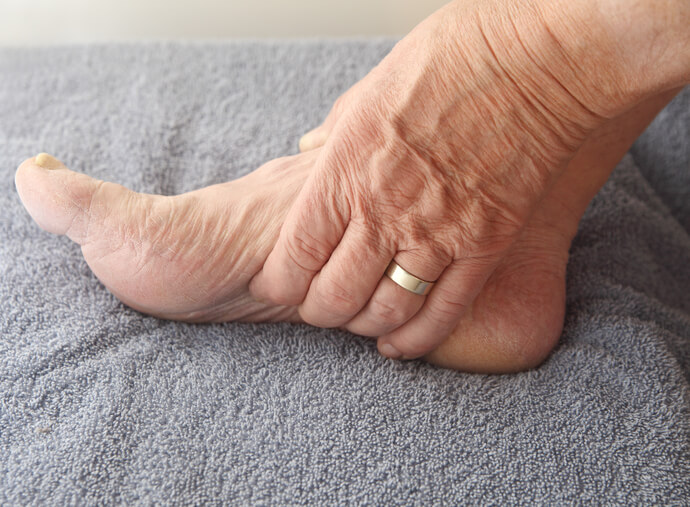Most type 2 diabetics don’t think an amputation is within the realm of possibility when first diagnosed. But diabetes puts you at a higher risk for calluses, bunions, blisters, ulcers and corns. Why? Because high blood sugar damages your nerves. And damaged nerves may lead to diabetic neuropathy — a condition where you lose feeling in your hands and feet. In fact, over 70% of diabetics experience neuropathy. And not being able to feel injuries on your feet can turn minor injuries like calluses into potentially debilitating infections. Infections can lead to gangrene — and once any body part develops gangrene, it requires amputation. Most often, amputations affect the toe, foot, or (in rare cases) the entire leg. On average, 2% of diabetics require an amputation. However, diabetes drug Invokana is show to more than double amputation risks.
FDA Confirms Diabetes Drug Invokana More Than Doubles Amputation Risks
The FDA confirmed that taking popular diabetes drug Invokana or Invokamet more than doubles your amputation risks. Your absolute risk is 2%, but with diabetes drug Invokana, your risk increases to 4% (Invokamet patients are also at risk). There are other effective medications for lowering blood sugar, but if you must take Invokana or Invokamet, amputations don’t usually happen overnight.
Doctors usually educate newly diagnosed diabetics about increased amputation risks from poorly controlled blood sugar. Until now, nobody thought a prescription drug specifically designed to lower blood sugar could more than double those amputation risks. According to the FDA’s adverse events database, toes were the most common amputation type reported among Invokana patients. However, the FDA’s most recent Invokana drug safety communication also listed amputations involving the “leg, below and above the knee.” Finally, the agency’s May 2017 warning also noted that “some patients had more than one amputation, some involving both limbs.”
7 Tips to Reduce Your Amputation Risk With Diabetes Drug Invokana
- Wash your feet daily in lukewarm water and a mild hypoallergenic soap, like Dove Unscented. Don’t use water, because nerve damage makes it easier to scald yourself without feeling it. Test the water with your hands first, and avoid soaking too long. Dry your feet right after, especially between your toes. Patting gently shouldn’t irritate damaged or dry skin.
- Inspect your feet for bruises, cuts, calluses or cracks in dry skin. Diabetic neuropathy means you might not feel any damage until infection sets in. Use a mirror to do this if you need to, or ask a friend or relative for help. Be sure to check between your toes, since infections and blisters often start there.
- Report any changes in your skin’s color or texture to your doctor immediately! Treating sores before they become infected will greatly reduce your amputation risks, even with diabetes drug Invokana.
- Trim toenails when they’re softest — just after washing. Always cut straight across and use an emery board to file down corners. If you have trouble doing this yourself, a podiatrist can do it.
- Use lotion or oil to moisturize your feet after drying off, but never between your toes. Fungus grows there faster than other areas.
- Wear seam-free socks and shoes year-round. Avoid going barefoot or wearing flip-flops, even indoors. Infection is more likely to affect dry or cracked skin year-round, and seamed shoes or sandals can rub blisters that lead to infections.
- Ask your doctor for other ways to improve lower-limb circulation. Mild exercise, quitting smoking, and other methods can help you minimize your amputation risks. Managing your blood pressure, sugar, and weight can also help you minimize amputation risk with or without diabetes drug Invokana.
What Amputation Victims Taking Diabetes Drug Invokana Can Do
If you or a loved one take Invokana or Invokamet to manage your diabetes, monitor your feet carefully. Diabetics are already at a high risk for amputation, but these drugs double it. If you take Invokana or Invokamet and require a foot, toe or leg amputation, you may qualify for a cash settlement. Patients who develop other life-threatening side effects like kidney failure or ketoacidosis may also qualify for compensation from the manufacturer. To check eligibility, fill out your free Invokana claim evaluation today. Once you’ve submitted your information, we’ll call with next steps to help you get the compensation and justice you deserve.
Related: FDA Issues Update About Invokana Amputation Risks
